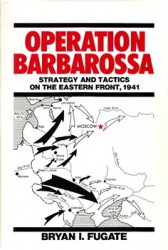Communist leaders in China, from their new capital at
Beijing, hoped that their accession to power in 1949
would bring about an era of peace in the region and permit
their new government to concentrate on domestic
goals. But the desire for peace was tempered by their
determination to erase a century of humiliation at the
hands of imperialist powers and to restore the traditional
outer frontiers of the empire. In addition to recovering
territories that had been part of the Manchu Empire, such
as Manchuria, Taiwan, and Tibet, the Chinese leaders
also hoped to restore Chinese influence in former tributary
areas such as Korea and Vietnam.
It soon became clear that these two goals were not always
compatible. Negotiations with Moscow led to Soviet
recognition of Chinese sovereignty over Manchuria
and Xinjiang (the desolate lands north of Tibet that were
known as Chinese Turkestan because many of the peoples
in the area were of Turkish origin), although the Soviets
retained a measure of economic influence in both
areas. Chinese troops occupied Tibet in 1950 and
brought it under Chinese administration for the first time
in more than a century. But in Korea and Taiwan, China’s
efforts to re-create the imperial buffer zone threatened to
provoke new conflicts with foreign powers.
The problem of Taiwan was a consequence of the Cold
War. As the civil war in China came to an end, the Truman
administration appeared determined to avoid entanglement
in China’s internal affairs and indicated that it
would not seek to prevent a Communist takeover of the
island, now occupied by Chiang Kai-shek’s Republic of
China. But as tensions between the
United States and the new Chinese
government escalated during the winter
of 1949–1950, influential figures in
the United States began to argue that
Taiwan was crucial to U.S. defense
strategy in the Pacific.
The outbreak of war in Korea also
helped bring the Cold War to East
Asia. As we have seen in Chapter 3,
Korea, long a Chinese tributary, was
annexed into the Japanese Empire in
1908 and remained there until 1945.
The removal of Korea from Japanese
control had been one of the stated objectives
of the Allies in World War II,
and on the eve of Japanese surrender
in August 1945, the Soviet Union and
the United States agreed to divide the
country into two separate occupation
zones at the 38th parallel. They originally
planned to hold national elections after the restoration
of peace to reunify Korea under an independent government.
But as U.S.-Soviet relations deteriorated, two
separate governments emerged in Korea, Communist in
the north and anti-Communist in the south.
Tensions between the two governments ran high along
the dividing line, and on June 25, 1950, with the apparent
approval of Joseph Stalin, North Korean troops invaded
the south. The Truman administration immediately
ordered U.S. naval and air forces to support South
Korea, and the United Nations Security Council (with
the Soviet delegate absent to protest the failure of the
UN to assign China’s seat to the new government in Beijing)
passed a resolution calling on member nations to
jointly resist the invasion. By September, UN forces
under the command of U.S. General Douglas MacArthur
marched northward across the 38th parallel with the
aim of unifying Korea under a single non-Communist
government.
President Truman worried that by approaching the
Chinese border at the Yalu River, the UN troops could
trigger Chinese intervention but was assured by Mac-
Arthur that China would not respond. In November,
however, Chinese “volunteer” forces intervened on the
side of North Korea and drove the UN troops southward
in disarray. A static defense line was eventually established
near the original dividing line at the 38th parallel,
although the war continued.
To many Americans, the Chinese intervention in Korea
was clear evidence that China intended to promote
communism throughout Asia, and recent evidence does
suggest that Mao Zedong, convinced
that a revolutionary wave was on the
rise in Asia, argued to his colleagues
that they should not fear a confrontation
with the United States on the
Korean peninsula. In fact, however,
China’s decision to enter the war was
probably motivated in large part by the
fear that hostile U.S. forces might be
stationed on the Chinese frontier and
perhaps even launch an attack across
the border. MacArthur intensified such
fears by calling publicly for air attacks
on Manchurian cities in preparation for
an attack on Communist China. In any
case, the outbreak of the Korean War
was particularly unfortunate for China.
Immediately after the invasion, President
Truman dispatched the U.S. Seventh
Fleet to the Taiwan Strait to prevent
a possible Chinese invasion of
Taiwan. Even more unfortunate, the
invasion hardened Western attitudes
against the new Chinese government
and led to China’s isolation from the
major capitalist powers for two decades. As a result,
China was cut off from all forms of economic and technological
assistance and was forced to rely almost entirely
on the Soviet Union, with which it had signed a pact of
friendship and cooperation in early 1950.




 World History
World History




![United States Army in WWII - Europe - The Ardennes Battle of the Bulge [Illustrated Edition]](/uploads/posts/2015-05/1432563079_1428528748_0034497d_medium.jpeg)




